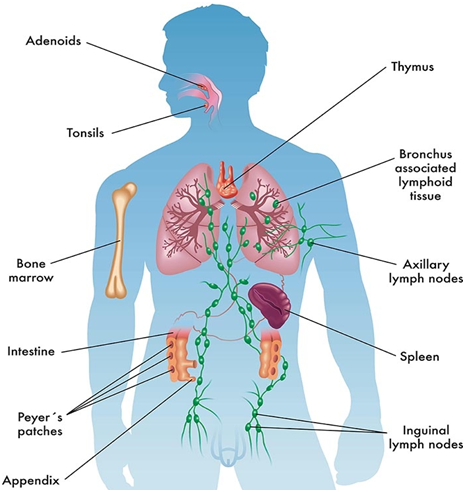Immunization is the process whereby a person is made immune or resistant to an infectious disease, typically by the administration of a vaccine. Vaccines stimulate the body’s own immune system to protect the person against subsequent infection or disease. Another word that can be used for immunization is vaccination. Immunization is a proven tool for controlling and eliminating life-threatening infectious diseases and is estimated to avert between 2 and 3 million deaths each year. It is one of the most cost-effective health investments, with proven strategies that make it accessible to even the most hard-to-reach and vulnerable populations. It has clearly defined target groups; it can be delivered effectively through outreach activities; and vaccination does not require any major lifestyle change.
Immunization defined in a layman’s understanding
When you get sick, your body makes antibodies to fight the disease to help you get better. These antibodies stay in your body even after the disease is gone, and protect you from getting the same illness again. This is called immunity. However, you don’t have to get sick to develop immunity. You can gain immunity against disease through immunization.
Immunity through immunization
Immunization (or vaccination) protects people from disease by introducing a vaccine into the body that triggers an immune response, just as though you had been exposed to a disease naturally. The vaccine contains the same antigens or parts of antigens that cause the disease, but the antigens in vaccines are either killed or greatly weakened. Vaccines work because they trick your body (in this case your immune system) into thinking it is being attacked by the actual disease; and in the process, plenty amount of immunological weapons (e.g., antibodies) will be produced to attack the invading pathogen.
Immunity through immunization happens without the consequence of being ill and without the risk of potential life-threatening complications from the disease. Once a person is immunized, specific immune cells called memory cells prevent re-infection when they encounter that same disease again in the future. However, not all vaccines provide lifelong immunity. Vaccines such as the tetanus vaccine require booster doses every ten years for adults to maintain immunity.
Immunization is not just for children
At any age, vaccination provides the longest-lasting, most effective protection against disease. Vaccine-preventable diseases can be serious, and in some cases can cause life-threatening complications that can lead to hospitalization. This is especially a concern for infants and young children, who are particularly more vulnerable. Having children vaccinated on time is important and helps ensure that they receive the protection they need as early as possible to fight off diseases before they are even exposed to them.
Immunization is important not only in childhood, but in adulthood as well, to help promote healthy aging. This is because childhood immunization does not provide lifelong immunity against some diseases such as tetanus (lockjaw) and diphtheria. Adults require helper, or booster, shots to maintain immunity. Adult vaccinations may also be recommended to protect against disease common in adulthood such as shingles.
Adults who were not adequately immunized as children may be at risk of infection from other vaccine-preventable diseases. They can also infect others. For example, adults who become ill with measles, mumps or pertussis (whooping cough) can infect infants who may not yet be fully immunized.
Since the introduction of vaccines, many serious illnesses have been brought under control.
Immunization can protect people from many infectious diseases including:
- blood infection
- diphtheria
- ear infection
- Haemophilus influenzae type b
- hepatitis A
- hepatitis B
- Human papillomavirus (HPV)
- Influenza
- measles (red measles)
- meningitis
- mumps
- pertussis (whooping cough)
- pneumonia
- polio
- rotavirus
- rubella (German measles)
- tetanus (lockjaw)
- varicella (chickenpox)
Why is immunization important?
Immunization is important because it is one of the best ways that humans can protect themselves and future generations from infectious diseases and their causative agents. People who are vaccinated against a particular infection or disease help to build herd immunity in the general population; and this helps to wipe out disease that could spread now and into the future.
- Immunization helps to stop the spread of infectious diseases in a human population.
- It saves lives and helps protect the future generation from being infected.
- Vaccination helps the human population to develop immunity against infectious diseases and their causative agents.
How do vaccinations work?
All immunizations work in the same way. The vaccination uses your body’s immune system to increase protection to an infection before you come into contact with that infection. In other words, it is like being infected with the disease without suffering the actual symptoms. Usually, some particles from the actual pathogen are used in the production of the vaccine. These particles are usually attenuated or weakened so that they do not cause any illness in the population receiving the vaccination. If you come into contact with an infection after you’ve been vaccinated, your body works to stop you from getting the disease, or you may get just a mild case. Unlike other proposed approaches to immunization (such as homeopathy), vaccinations have been rigorously tested to demonstrate their safety and effectiveness in protecting against infectious disease.
What about people who cannot be immunized?
Some people in our community cannot be vaccinated. This might be because they are too young or too sick. You can help protect these vulnerable people by keeping your family’s vaccinations up to date. When enough people in the community are vaccinated, the spread of a disease slows down or stops completely. So as long as enough people are vaccinated, the disease will not spread. This is called herd immunity.
Modern outbreaks of infectious diseases
Many infectious diseases are rare or not around anymore, thanks to vaccination. But there are still infectious disease outbreaks happening around the world today:
- CORONAVIRUS DISEASE 2019 (COVID-19) – caused by a new strain of coronavirus known as SARS-Cov-2 (severe acute respiratory syndrome coronavirus type 2 or strain 2). SARS-CoV is responsible for causing the recent pandemic that the world is battling with. COVID-19 has shattered the economy of many nations including the best of the best nations in just a short period of time; and there is currently no cure or vaccine for the disease. However, research and development towards the release of a functional cure and vaccine against COVID-19 is currently ongoing and intensive in different parts of the globe. COVID-19 has caused hundreds of thousands of deaths across the globe with the United States of America and some countries in Europe being the most hardest hit regions in the world in terms of the morbidity and mortality rates of SARS-CoV-2, and the disease is ongoing.
- FLU, CHICKEN POX, WHOOPING COUGH AND MEASLES – these diseases still have occasional outbreaks in Australia and other parts of the world, mainly when introduced from overseas. They could make a strong comeback if people stop vaccinating. In January 2019, 62,225 measles cases were notified globally compared to the same period in 2018 when only 23,535 cases were notified.
- ZIKA – in February 2016 the World Health Organization (WHO) declared the Zika virus an international public health emergency following outbreaks in Central and South America. There is ongoing evidence of transmission throughout the Americas, Africa and other regions of the world. As of 2018, a total of 86 countries and territories have reported evidence of mosquito-transmitted Zika infection. No vaccine exists for zika but research is underway.
- EBOLA – the latest outbreak of Ebola virus disease started in Democratic Republic of Congo in August 2018, and is ongoing but brought under control. No vaccine exists for Ebola but research is still underway.
- HIV/AIDS – The first cases of HIV/AIDS were identified in the gay community in America in 1981 and, by 1985, at least one case had been reported from each region of the world. In 2017, more than 36.9 million people around the world were living with HIV/AIDS. There is still no cure or vaccine for HIV/AIDS, but current treatments allow patients to live long and healthy lives.
Sources:
www.betterhealth.vic.gov.au/health/healthyliving/Why-immunisation-is-important
www.healthlinkbc.ca/health-topics/hw255342
www.who.int/topics/immunization/en/
www.immunize.ca/what-immunization
Discover more from #1 Microbiology Resource Hub
Subscribe to get the latest posts to your email.



